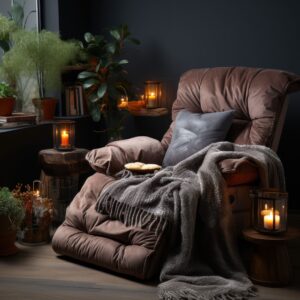
Have you been feeling chronically fatigued throughout the day regardless of how much rest you got the night before? If so, you might be suffering from sleep apnea. This condition pauses and restarts your breathing at night which interrupts your sleep cycles. When this happens consistently, it can influence your body, mind, and emotions in addition to your oral health.
Fortunately, you don’t have to live with the symptoms forever. There are several ways you can combat the effects of sleep apnea. For example, it’s commonly believed that sleeping in a reclined position can help alleviate symptoms. If you’re curious to know more, keep reading to learn about how this can help!
What Exactly is Sleep Apnea?
Knowing more about sleep apnea can help you understand why dozing in a more upright position can be beneficial. There are two types to be aware of, and they are:
- Obstructive sleep apnea. This is the more common type and occurs when your airways are physically blocked at night. When you stop breathing, your body jolts you awake as a survival technique.
- Central sleep apnea. Sometimes there are interruptions in the signals between your brain and your breathing mechanism that cause your airflow to stop and restart repeatedly.
Having long periods of continuous slumber is important to organize thoughts and feelings, heal your cells, and restore your body’s immune system. Without it, you’ll continue to feel exhausted and can develop mood disorders or dental concerns like gum disease.
Does Sleeping Upright Alleviate Sleep Apnea?
If you have obstructive sleep apnea, it could be due to the muscles in your throat relaxing which causes your airway to collapse. One scientific study demonstrated that by slightly elevating your head, you can potentially reduce the severity of this condition by up to 30%. Another experiment showed that 65% of participants had a reduced number of nightly disturbances this way. If your upper back hunches over, though, it can hinder the flow of air into your lungs so be sure you’re reclined enough to avoid slumping. If you have a lung problem, talk with your doctor first before switching positions.
How Do I Sleep in a Recliner?
If you’re worried you won’t be as comfortable in your chair, following these tips might help:
- Put a sheet over your chair (especially if it’s leather) to reduce sweating.
- Ensure you have enough blankets to keep you cozy all night long.
- Bring a pillow if your headrest doesn’t have appropriate cushioning.
- Consider compression socks or supporting your legs in front of you to avoid blood pooling in your feet.
You may still experience interruptions so if you’re worried, call your dentist. They can help diagnose your sleep apnea and provide appropriate solutions so that you can once again enjoy a solid night’s rest!
About the Author
Dr. Bernard L. Greenbaum has more than 25 years of experience helping patients improve their daily lives by addressing oral issues like sleep apnea. He graduated from Georgetown University School of Dentistry and then earned his fellowship with the Academy of General Dentistry. Now, he regularly attends sleep apnea meetings and is a diplomate of the American Board of Dental Sleep Medicine, making him an expert at addressing sleep-related dental problems. If you’d like a consultation, you’re welcome to request an appointment on the website or by calling (301) 530-3600.
